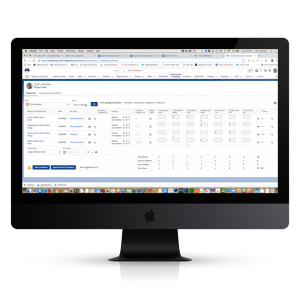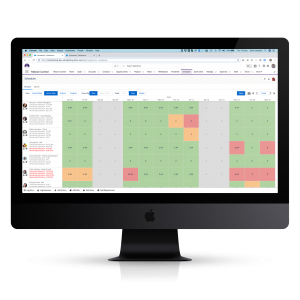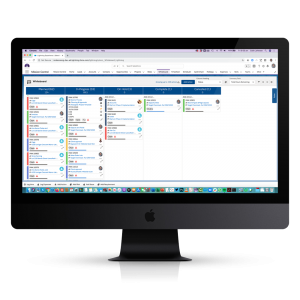WE REVIEW KPMG’S THE FUTURE OF PROJECT MANAGEMENT: GLOBAL OUTLOOK 2019, looking at Agile Methodology and its Future in this space
The last couple of years has seen a shift within the project management industry and this was well reflected within KPMG’s research. Predominately driven by changes in business operations, this shift includes a demand to be more disruptive and an ability to successfully navigate rapidly changing landscapes. This has a direct impact on the fundamentals of project management including the three pillars of cost, time and scope, all being challenged when faced with a need to be more flexible.
The research found that this has led to more uptake in Agile methodology, 47% compared to 24% from the last survey. But this isn’t always the best solution for every project within an organization and how exactly can you define ‘Agile Methodology’?
We wanted to explore this further along with some of the other key findings of the research.
DELIVERY OF PROJECTS
To begin with we were shocked to hear that less than half of organizations are likely to deliver projects that meet their original goals (44%)! So what is going wrong here? Why are businesses struggling to keep the projects on track, as only 19% of organizations said they deliver successful projects most of the time?
We can assume that some of the factors involved in this limited success derive from challenges to meet the fundamentals of time, budget and scope, an aspect that was highlighted within the report. So how can the project management profession respond to these challenges? Speaking to our customers and understanding their needs provides us with some good insight around how these fundamentals are addressed.
Time
Starting with time, this is always the biggest challenge as we find so many organizations have unrealistic expectations on how long elements of projects take and do not have enough data to be able to make informed decisions. Our Timesheet feature allows accurate logging of time which not only enables you to have real-time data around how the current projects are tracking, but can also provide data on previous projects and realistic timeframes to input into future planning. This is also via the Salesforce mobile app using the ‘Time Logger’ allowing you to track using the start/stop functionality. Agile Methodology is a perfect solution to help you manage time.

Budgets
This is a challenge that can be directly impacted by time, particularly around resourcing costs. If the project takes longer than planned then the cost of paying resources increases. We understand from most of our customers the costs of products and materials can be well managed particularly in businesses that are well experienced in the sourcing and supply chain around these items. If anything, the challenge there is to aim to reduce costs and increase margins where possible.
In terms of resourcing this is where a good oversight of capacity and planning is so important. Within Mission Control, which is native to the Salesforce platform, you can review availability and manage allocation according to capacity and this is all controlled from a centralised view enabling you to be nimble if circumstances change for individuals or we enter into a pandemic!

Scope
Being able to plan out the scope and delivery needs of your project accurately, again, can be based on having the best data and insight from previous projects. However, what can also help, if you are starting a project without this information or from scratch, is being able to move and shift elements of the project easily around in real-time. Our interactive Gantt Chart allows for movement of timelines, scope and activity all in the one place alongside our Kanban Board where actions can easily be placed under the relevant status level, priorities adjusted and progress recorded. With these elements and the Project Overview page, you can easily keep track of the scope of the project ensuring it doesn’t get out of hand.
IS THE SOLUTION AGILE?
From the KPMG research we can dissect and analyse that there is a definitive need for Agile methodologies, particularly as we know that project management is now being used to drive organizational strategy and not just delivering outcomes for business.
However, we shouldn’t be lured into a sense of security in that Agile is the ultimate answer as some projects don’t necessarily work best using these methods, particularly construction and manufacturing industries. Just as we need to think of adopting Agile methods within project management we also have to be agile ourselves in our thinking of what this means and the practicalities of implementation.
The term ‘Wagile’ has been coined to service a hybrid of both Agile and Waterfall methodologies, however we feel as professionals we shouldn’t be bound by terminology and rigid rules around how to implement projects. Every project is different and as the research found, both methodologies will still deliver sub optimal outcomes if there are wider issues of company engagement and governance.
Therefore the need for collaborative and effective software to support projects is paramount. The research also references how collaboration software usage is increasingly being recognised as important in assisting in complex and large projects. We believe that in order to service lots of different projects from small to large and adopt the best methodology for your organization, from Agile to Waterfall, ultimately you need a project management software that can adapt to all of the above.
This was our ‘Raison D’etre’ for creating Mission Control in the first place, so if you are looking for a solution why not take it for a test drive?




